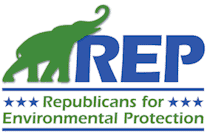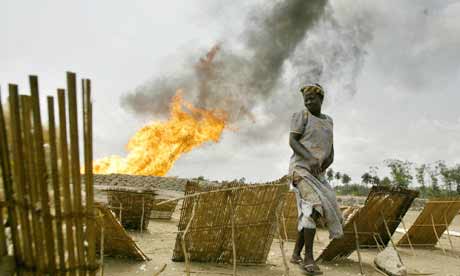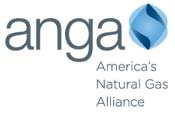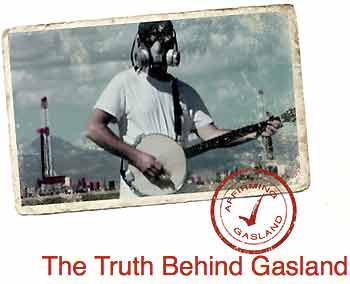Biblio
Let's consider for a moment the targets the federal government chooses to make an example of.
So far, no bankers have been charged, despite the unmitigated greed that nearly brought the world economy down. No coal or oil execs have been charged, despite fouling the entire atmosphere and putting civilization as we know it at risk.
But engage in creative protest that mildly disrupts the efficient sell-off of our landscape to oil and gas barons? As Tim DeChristopher found out on Thursday, that'll get you not just a week in court, but potentially a long stretch in the pen...
Bill McKibben
Bill McKibben is the author of a dozen books on the environment, a scholar in residence at Middlebury College, and founder of 350.org. He also serves on Grist’s board of directors.
See: Tim DeChristopher | Bidder70.
See: Gas Drillers Plead Guilty to Felony Dumping Violations
See: Student Disrupts Government Auction of 150,000 Acres Of Wilderness For Oil & Gas Drilling.
See: The Need for Mass Mobilizations
See also: Video - 350.org: Because the world needs to know.
See: Amy Goodman and Juan Gonzalez. "Environmentalist Tim DeChristopher Found Guilty of Sabotaging Oil and Gas Auction; Faces up to 10 Years in Jail." Democracy Now!. March 4, 2011.
A federal proposal laying out new standards for a controversial natural-gas drilling practice called hydraulic fracturing likely won’t be issued until after the 2012 elections, an energy analyst said Thursday.
The practice is certain to be an election issue for lawmakers from states in which hydraulic fracturing is prevalent, but the timing of the standards would take that hot-button issue off the table.
Comment:
"This new process is a Godsend…BY Grandma" on 02/11/2011 at 20:52
The federal government must step in and start regulating fracking. Hydraulic fracturing should NOT be exempt from the Safe Water Drinking Act and Clean Water Act. This industry is killing people by contaminating aquifers across the nation. Fracking is shaping up to be the cause of the biggest environmental and public health disaster this country has ever witnessed. 2012 is too long to wait to start correcting this horrific wrong that has been committed against the people of the United States.
See: Toledo. Free Press. "Kasich says Marcellus Shale could be ‘godsend’ for Ohio." Toledo. Free Press. 2011-01-01.
See: U.S. Congress. Committee on Space, Science, and Technology. "Hearing Highlights Lack of Objectivity in Draft EPA Fracking Study--No Evidence of Drinking Water Contamination from Fracking, Witnesses Say". May 11, 2011
Expert reports and selections of news accounts and analysis of the breaking news concerning the meltdown of Japan's nuclear reactors ongoing since March 13, 2011.
To respond to questions we’ve been getting, we’re developing a set of responses to “frequently asked questions.” The FAQ is located here: "Nuclear Reactor Crisis in Japan FAQs", and we will continue adding to it through the week.
Follow Google News on 'meltdown'.
Contact All Things Nuclear.
A project of the Union of Concerned Scientists.
Is America witnessing the birth of a new civil war? A polarization of political ideologies has paralyzed the democratic process and poisoned the relationship needed between politics, science, and hermeneutics.
This conservative organization's action page has form letters on a number of issues that Republican voters may send to their representatives to let them know that the party line may not be in their best interests.
Whether or not the debate is about jobs, public radio, oil and gas, or America's military footprint in the world; all Americans will benefit by the preservation of our resources. Conservative Republicans, Liberal Democrats, and everyone in between and on the fringes can work together to provide the regulatory leadership that demonstrates our respect for all life and a basic human right to clean water and air.
The "Big Lie" perpetrated by climate change doubters and insincerely debated by Global Warming Experts, warrants the recall of those representatives whose bullying is tantamount to treason and rends our union vulnerable to the extremist, irresponsible policy that cites Climate Change as a lie, endangering the health and safety of our children, and putting us at the brink of disaster. (Neil Zusman, 2011-03-17).
The Senate letter, "Congress Should Pass a 'Clean' Continuing Resolution" includes:
As a Republican voter, I urge you to support a fair 2011 continuing resolution that does not target environmental and conservation programs for a disproportionate share of budget cuts and is free of the anti-environmental riders that were, unfortunately, included in a resolution that the House passed on February 19.
I understand the need to correct the federal government’s fiscal imbalances, and it is fair to require reductions in environmental and conservation programs. It is not fair, however, to require these programs to shoulder a disproportionate share of the reductions. Nor should the resolution include the shockingly extreme riders that were in the House’s resolution. These riders would weaken bedrock environmental laws, including the Clean Air Act and Clean Water Act, as well as public lands protection and wildlife conservation.
Republicans were not elected to weaken laws that protect Americans’ health and protect our nation’s scenic, historic, and wildlife treasures for future generations.
Congressional Republicans must return to the traditional conservatism that values stewardship, saving for the future, and making frugal and careful use of our country’s natural as well as its fiscal resources.
Please support a continuing resolution that takes a rational approach towards correcting our nation’s fiscal imbalances, and avoids indulging the anti-environmental agendas of political extremists.
See: Smackdown: climate science vs. climate economics.
See: Climate Co-benefits and Child Mortality Wedges.
See: Snubbing Skeptics Threatens to Intensify Climate War, Study Says.
See: Climate Zombies Now Run The House.
See: GOP Budget Amendments Would Destroy Health, Economy, Planet
See: EPA chief faces hostile House GOP
See: Energy & Commerce Committee Investigates Potential Impacts of Hydraulic Fracturing
American Electric Power v. Connecticut, argued earlier this week, spurs debate over the role of the courts in addressing climate change.
The Court heard oral argument in American Electric Power v. Connecticut on Tuesday. The case raises questions about the role of the federal courts in addressing climate change–a subject that has interested academics as well. Professors David Markell and J.B. Ruhl address the issue empirically by reviewing every climate change case brought through December 31, 2009, to determine whether courts are serving as “battlefields” in the “climate fights.”
A forthcoming article in the Yale Law Journal by Benjamin Ewing and Douglas Kysar argues that climate change litigation illustrates how tort law can prod political actors to address social problems. And John Wood’s article in the Environmental Law Reporter runs through the arguments regarding displacement of public nuisance claims in the context of climate change. All three articles contend that climate change litigation raises important questions about the relationship between the judiciary and the political branches of government. We’ll soon learn the Court’s views on these questions as well.
See: SCOTUSblog | American Electric Power Co., Inc. v. Connecticut.
See: Markell, D., and J. B. Ruhl. “An Empirical Survey of Climate Change Litigation in the United States.” Envtl. L. Rep. News & Analysis 40 (2010): 10–644. Print.
See: Ewing, B., and D. A Kysar. “Climate Change, Courts, and the Common Law.” Print.
See: Wood, John. "Easier Said than Done: Displacing Public Nuisance when States Sue for Climate Change". (February 17, 2011). Environmental Law Reporter, Forthcoming. Available at SSRN: http://ssrn.com/abstract=1763359
On Aug. 17, 2010, The Associated press reported that the Pennsylvania Department of Environmental Protection fined Atlas Energy nearly $100,000 for a wastewater spill that contaminated a Washington County watershed.
Environmental officials said Atlas allowed hydraulic fracturing fluids used to drill in the Marcellus Shale to overfill a wastewater pit and contaminate a tributary of Dunkle Run.
DEP officials said the spill happened in early December 2009. Environmental officials say Atlas corrected the problem but failed to report it to the DEP.
See: Pennsylvania lawsuit says drilling polluted water.
Feb. 16, 2010.
AVELLA, Pennsylvania (Reuters) – A Pennsylvania landowner is suing an energy company for polluting his soil and water in an attempt to link a natural gas drilling technique with environmental contamination.
George Zimmermann, the owner of 480 acres in Washington County, southwest Pennsylvania, says Atlas Energy Inc. ruined his land with toxic chemicals used in or released there by hydraulic fracturing.
Water tests at three locations by gas wells on Zimmermann’s property — one is 1,500 feet from his home — found seven potentially carcinogenic chemicals above “screening levels” set by the U.S. Environmental Protection Agency as warranting further investigation.
Atlas Energy, Inc. (NASDAQ: ATLS) formerly Atlas America, Inc. ("Atlas Energy" or "the Company"), has been engaged in the energy industry since 1968 and is currently a leading producer in the Marcellus Shale.
The company is also one of the largest producers in the New Albany Shale in Indiana, the Antrim Shale in Michigan and the Chattanooga Shale in Tennessee. Atlas Energy is the country's leading sponsor and manager of tax-advantaged energy investment partnerships that finance the exploration and development of natural gas. Over the last five years, Atlas Energy has raised in excess of $1.5 billion through its drilling programs.
As You Sow is promoting corporate accountability through shareholder action and toxics reduction using innovative legal strategies and community grantmaking. We are transforming corporate behavior and creating a more socially and environmentally just society.
See: David O. Williams. May 26, 2011. "Major bloc of Chevron, Exxon shareholders vote to look closer at fracking." Washington Independent.
Ardent is a privately held, independent oil and gas company headquartered in Pittsburgh, Pennsylvania.
Ardent is mentioned in Item 11 of an online petition, "Remove Department of Environmental Conservation Commissioner Pete Grannis and Director of the Division of Mineral Resources Bradley J. Field". In the form of a letter to New York's Governor Patterson, this petition is found at the website Catskill Citizens for Safe Energy.
Although Ardent addressed a problem caused by their drilling, residents questioned how they could afford the annual maintenance costs for the high-tech purification systems, which improved the quality of their water supply at a cost of between $10,000 and $14,000.
Far from the Gulf of Mexico, campaigners are accusing energy companies of destroying land and livelihoods in the search for increasingly scarce resources.
The eyes of the world are on BP after the disaster that left oil spewing into the Gulf of Mexico at the rate of 50,000 barrels a day. But campaigners accuse Big Oil of an appalling track record elsewhere in the world, saying it leaves a trail of devastation in its wake.
From Nigeria to Kazakhstan in Central Asia, and Colombia and Ecuador in South America, the oil majors stand accused of a blatant disregard for local communities and the environments in which they operate.
With demand for energy expected to surge as industrialisation accelerates in China, India and Brazil, critics say oil companies are taking ever-increasing risks to cash in on yet another bonanza...
...Kate Allen of Amnesty International says: "The result of oil exploration, extraction and spills is that many people in the Niger Delta have to drink, cook with, and wash in polluted water; they have to eat contaminated fish – if they are lucky enough to still be able to find fish – and farm on spoiled land."
She adds: "After oil spills, the air reeks of pollutants. Many [people] have been driven into poverty, and because they can't make Shell accountable for its actions, there is enormous distrust between the group and local people."
See: Nigeria's agony dwarfs the Gulf oil spill. The US and Europe ignore it | Environment | The Observer
Anadarko is among the largest independent oil and natural gas exploration and production companies in the world, with approximately 2.3 billion barrels of oil equivalent (BBOE) of proved reserves at year-end 2009.
See: Cliford Kraus. (2008). New York Times. "There’s Gas in Those Hills".
Andarko, BP, and Transocean have each blamed the other for responsibility in the The Deepwater Horizon oil spill (also referred to as the BP oil spill, the Gulf of Mexico oil spill, the BP oil disaster or the Macondo blowout).
See: Deepwater Horizon Committee Hears From Oil Industry Executives
BP’s partners in the Macondo well–Anadarko Petroleum and Mitsui–have so far refused to pay any costs for the spill, claiming that BP’s gross negligence means it is 100% liable.
If investigations exonerate BP, those companies will be liable for billions of dollars. There are particular doubts over whether Anadarko could afford to pay its full share.
The company’s credit rating was cut to junk level in June.
![]()
"The American Petroleum Institute (API) is the only national trade association that represents all aspects of America’s oil and natural gas industry. Our nearly 400 corporate members, from the largest major oil company to the smallest of independents, come from all segments of the industry. They are producers, refiners, suppliers, pipeline operators and marine transporters, as well as service and supply companies that support all segments of the industry."
See API Ads:
Increased production of oil and natural gas can help rebuild America’s economy by creating new jobs and generating more than $1 trillion for federal, state and local budgets.
Let's check the facts. The costs of spill clean-up, global warming, and devastated marine ecosystems remain undocumented.
See also: Put America to Work. (2009). Scroll down and roll over the interactive U.S. map and click on any state to read the same copy with plug-in paragraphs state by state.
Landmen constitute the business side of the oil and gas and mineral exploration and production team. "The American Association of Professional Landmen is a voluntary international professional organization that unites approximately 12,000 landmen and land-related persons through professional development and service."
The membership of American Association of Petroleum Geologists (AAPG) includes geologists, geophysicists, CEOs, managers, consultants, students and academicians. The purpose of the organization is to foster scientific research, advance the science of geology, promote technology and inspire high professional conduct.
America's Natural Gas Alliance exists to promote the economic, environmental and national security benefits of greater use of clean, abundant, domestic natural gas.
We represent 34 of North America's largest independent natural gas exploration and production companies and the leading developers of the shale plays now transforming the clean energy landscape.
See ANGA's rebuttal of Josh Fox's Gasland.
From Sourcewatch:
Immediately upon the film's release, Energy In Depth issued a paper claiming to "debunk" the film's documentary evidence.
Energy in Depth (EID) is a pro-oil-and-gas drilling industry front group formed by the American Petroleum Institute, the Petroleum Association of America and dozens of additional industry organizations for the purpose of denouncing the FRAC Act proposed by Colorado U.S. Rep. Diana DeGette to regulate underground fracking fluids.
EID has crafted an entire campaign to delegitimize Fox's film, coining itself "Debunking Gasland." Many Facebook and Google users have even reported "Debunking Gasland" ads popping up on those respective websites.
Josh Fox has responded to every claim in "Debunking Gasland" put forth by Energy In Depth in a piece titled "Affirming Gasland."
History of regulating hydraulic fracturing under the Safe Drinking Water Act (SDWA)
From Affirming Gasland, "Supplemental Reading Section", p. 24.
The Safe Drinking Water Act requires EPA to promulgate regulations for states to administer these provisions of the law in order to protect underground sources of drinking water. However, although the SDWA gave the EPA the authority to regulate underground injection practices, Congress also directed that the EPA should not prescribe unnecessary regulation on oil- and gas- related injection.
Therefore, after the Safe Drinking Water Act passed, the EPA erroneously took the position that hydraulic fracturing did not fall within the regulatory definition of underground injection as provided in the Act.
In 1997 the 11th Circuit Court of Appeals laid the matter to rest when it conclusively ruled in LEAF v EPA, 118 F.3d 1467 (11th Cir. 1997) that hydraulic fracturing activities constituted “underground injection” under Part C of the SDWA.
As a result of the court’s ruling, in 1999 the state of Alabama amended its rules and made hydrofracking subject to the provisions of Part C of the SDWA by requiring Class II permits for each hydrofracking well.
Cheney’s Halliburton (a prime developer and leading practitioner of hydraulic fracturing) began lobbying Washington to exempt fracturing from regulation under the Safe Drinking Water Act.
Then in 2001, during his second week in office, George W. Bush created the Energy Task Force, with Vice President Dick Cheney as chairman. The mission of the task force aimed to “develop a national energy policy designed to help the private sector.” Its final report included a recommendation to exempt fracturing from regulation. Cheney removed the exemption from the draft only after being pressed by EPA chief Christie Whitman.
The exemption surfaced again in the Bush/Cheney Energy Bill of 2003 which did not pass, and reemerged one final time, in the Energy Policy Act of 2005, thanks, in part, to the efforts of Congressmen James Inhofe of Oklahoma and Joe Barton of Texas. To avoid the effect of the ruling in LEAF v EPA, Sec 322 of the Act specifically provides that the term “underground injection” excludes the underground injection of fluids pursuant to hydraulic fracturing operations related to oil, gas, or geothermal production activities. This clause from the law is actually photographed in Gasland at 31:42.
The 2005 Energy Policy Act also altered the Clean Water Act stormwater provisions. Pub.L. No. 109-58, § 323, 119 Stat. 694 (codified as amended at 33 U.S.C. § 1362(24). Section 323 modified the Clean Water Act's definition of an oil and gas exploration and production activity to include oil and gas construction activities. Because the Clean Water Act mandates that the EPA not require a stormwater permit for oil and gas exploration and production activities, it has been argued that the change in the Energy Policy Act of 2005 excluded oil and gas construction activities from stormwater permit coverage, without regard of the size of acreage disturbed.
Previous laws exempted oil and gas drilling, known as oil and gas exploration and production, from Superfund (CERCLA) and RCRA (hazardous waste). CERCLA includes substances that are elements of petroleum as hazardous in Section 101(14), yet crude oil and petroleum are specifically exempt from coverage under the last clause of the section. Thus, hazardous chemicals that would otherwise fall under the ambit of CERCLA are immune from the statute when encompassed in petroleum or crude oil. Likewise, the Solid Waste Disposal Act (SWDA) of 1980 exempted oil field wastes from Subtitle C of the RCRA.
Oil and gas drilling is not typically covered by Clean Air Act permitting since EPA’s CAA regulations do not allow EPA to aggregate or group a set of wells as a single source of air emissions. EPA has proposed rules that if promulgated would allow EPA and the states to aggregate air emissions coming from one company when the facilities are connected to one set of piping.
Some oil and gas machines emit large enough air emissions to be subject to air permit requirements, for example gas dehydradation units emitting over 10 tons per year of volatile organic compounds (VOCs) and gas compressions engines emitting over 50 tons of NOx per year.
However, the industry remains mostly unregulated under this statute by using many smaller compressors and dehydrators which individually emit less VOCs than the limits. If these units were to be aggregated and counted as one larger source (which they should be, in our view) the regulations would be in effect. In addition, neither the diesel engines used to drill nor the volatiles that come off the reserve pits are subject to CAA permit regulations.
For a more complete list of these exemptions please see the following websites:
Earthworks. (2007). "The Oil and Gas Industry’s Exclusions and Exemptions to Major Environmental Statutes."
NRDC. (2007). "Drilling Down: Protecting Western Communities from the Health and Environmental Effects of Oil and Gas Production."
NRDC. (2007). "Toxic Oil and Gas Production Gets a Free Pass to Pollute."
The Energy Policy Act negated the effect of the Alabama LEAF case by expressly defining HF as not subject to the SDWA, provided that HF fluids did not contain diesel; HF that contains diesel remains subject to SDWA limitations.
See: IADC. "Alabama lawsuit poses threat to hydraulic fracturing across U.S." Drilling Contractor. Jan/Feb. 2000.
See: Gasland vs Big Oil and Gas
See: Gasland - The Debate
See: Bushwhacked : Life in George W. Bush's America
See: U.S. Environmental Protection Agency (EPA): Hydraulic Fracturing Study (2010-2012)
























